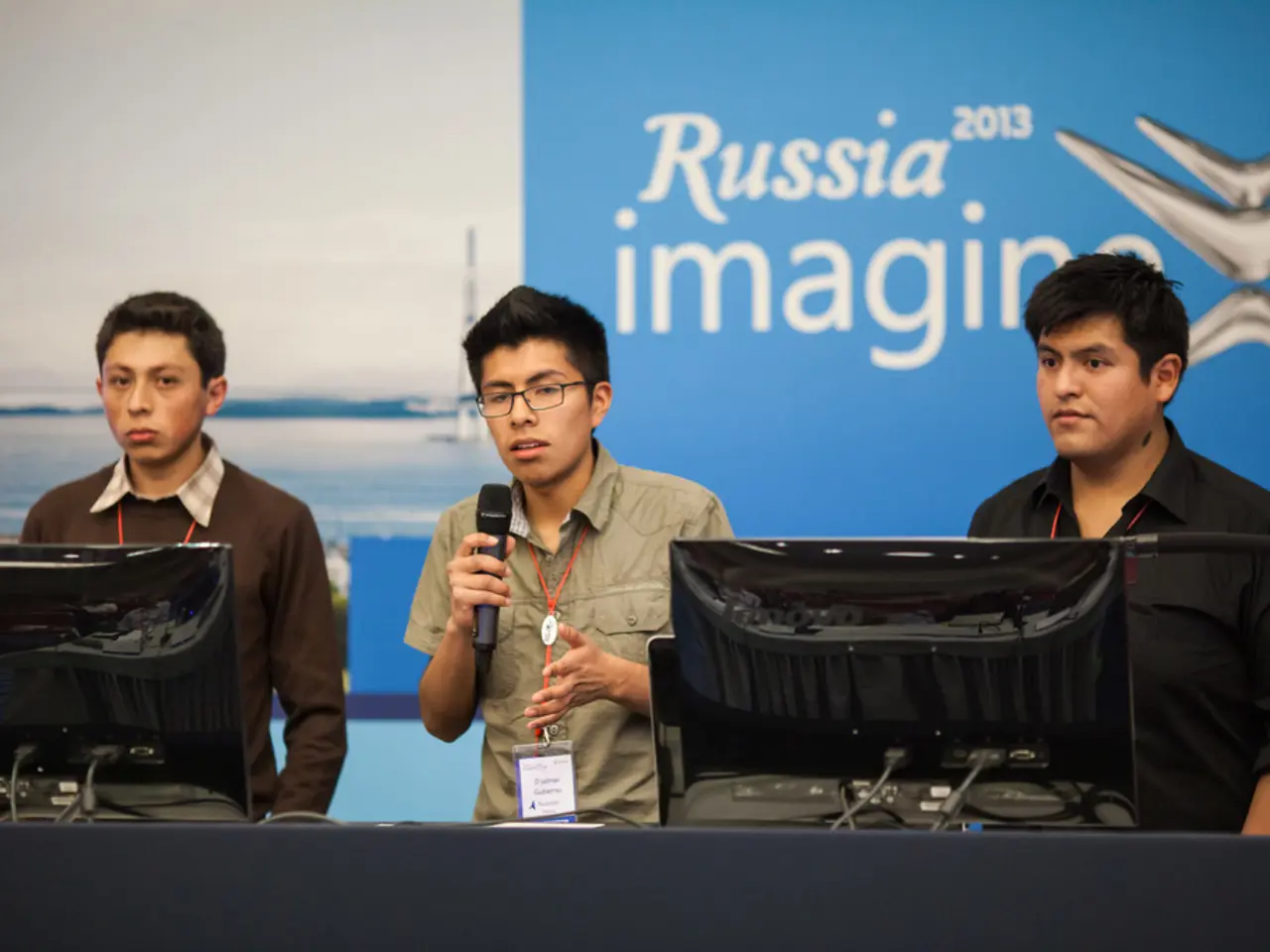Funding for startups in Asia declined once more, despite a minor rebound observed in Q2 2025.
Asia's startup ecosystem saw a modest rebound in Q2 2025, with investments totalling $26.2 billion in the first half of the year. However, this figure represents a significant drop from the same period last year, with only $13.5 billion raised in Q2 compared to $12.7 billion in Q1.
Japan and Singapore both experienced a modest Q2 rebound, but the gains were not enough to shift the region's overall trajectory. The decline in startup funding in Asia is predominantly due to cautious investor behavior driven by geopolitical and regulatory risks, immature market structures, particularly in Southeast Asia, weak IPO and exit markets, and broader global economic uncertainty.
Global Slowdown and Investor Caution
Venture funding in Southeast Asia dropped by nearly 80% from 2022 highs, with investors now prioritizing companies with steady cash flow over cash-burning tech startups. This shift reflects a more risk-averse sentiment amid market volatility.
Immature Ecosystems
Southeast Asia's startup ecosystem is considered less mature compared to China, which affects investor confidence. The lack of robust exit options, such as IPOs or acquisitions, reduces incentives for early-stage investors.
IPO Market Weakness and Exit Challenges
Singapore has seen very few IPOs in 2025, and public tech companies, like Indonesia’s GoTo, have suffered large share price declines, indicating limited liquidity options for investors.
Geopolitical Fragmentation and Regulatory Pressures
Rising US-China tensions have led investors and companies to "de-risk" by reallocating capital away from politically sensitive jurisdictions. Regulatory changes from the US SEC and China's securities regulators have increased disclosure burdens, lengthened review timelines, and created uncertainties about offshore listings for Chinese companies.
Global Macroeconomic Trends
While a softening US dollar and easing interest rates provide some incentive to invest in Asia, the overall equity market volatility combined with geopolitical and regulatory hurdles creates a cautious investment atmosphere.
Selective Strong Funding Pockets
Despite the overall decline, certain sectors and regions like China’s AI and robotics startups still attracted significant capital in Q2 2025, including large funding rounds for companies such as Tars ($122 million) and Galaxea ($100 million). However, these are exceptions in an otherwise cautious environment.
Looking ahead, the real question heading into the second half of 2025 is whether we'll see a return of growth rounds and strategic M&A activity to unlock some of Asia's potential. The decline in startup funding can largely be attributed to country-specific uncertainties, shrinking late-stage rounds, and investor caution at nearly every level. If Q2 was the floor, Q3 and Q4 could finally bring the lift, but if big checks stay sidelined, it might be a long year of trickle-over-torrent funding patterns across Asia.
Elsewhere, India offered a bit more optimism, with $3.2 billion raised in Q2, a slight increase from Q1. Israel posted its strongest quarter in over two years, with $1.9 billion raised in Q2 alone. However, the funding slump in Asia mirrors what has been seen in Africa. Southeast Asia has high consumer engagement and digital adoption, but spotty access to follow-on capital, especially for startups outside Singapore or Jakarta.
On a global scale, startup funding showed signs of life in Q2 2025, reaching its highest in over a year. AI and big exits contributed to the increase in global startup funding in Q2 2025. Despite Asia's cautious investment climate, its startup ecosystem isn't short on opportunity, but it's short on risk appetite. Only 155 late-stage deals were recorded in Asia in Q2 2025. Late- and growth-stage funding in Asia reached $6.4 billion in Q2 2025, slightly up from Q1, but still below historical averages.
Technology-focused investments in Southeast Asia's startup ecosystem experienced a significant decline in Q2 2025, with a nearly 80% drop from 2022 highs. This suggests that investors are now more cautious about financing tech startups.
The cautious investment atmosphere in Asia is mainly due to geopolitical and regulatory risks, immature market structures, weak IPO and exit markets, and broader global economic uncertainties, particularly affecting the technology sector.




